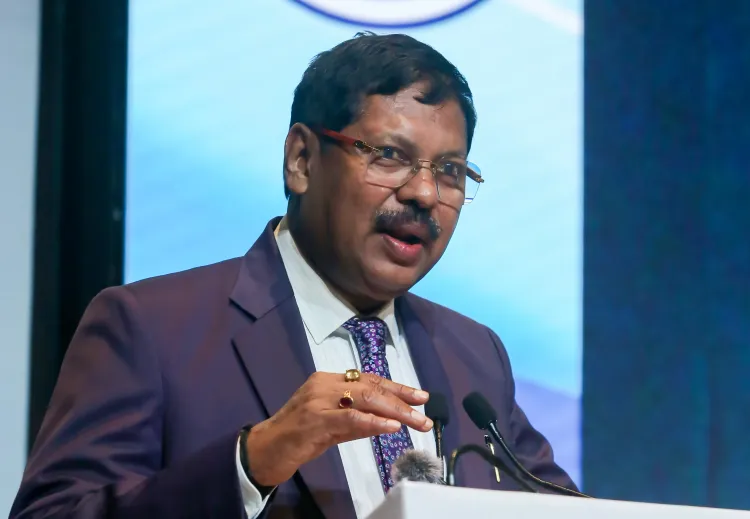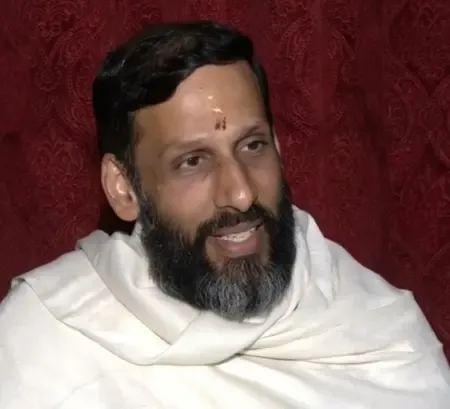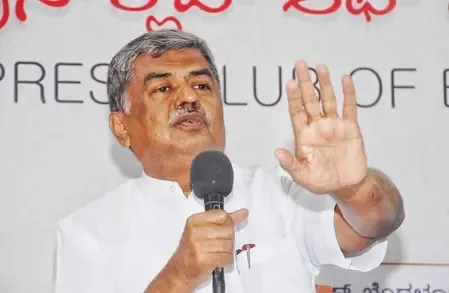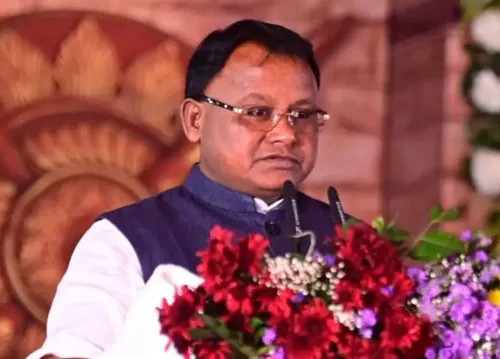Should CJI & Collegium Finalise MoP for Transparent Judicial Appointments?

Synopsis
Key Takeaways
- Urgent need for a transparent appointment process.
- Significant under-representation of women in judiciary.
- Reforms can enhance accountability and inclusivity.
- Current Collegium system needs comprehensive corrections.
- Proposed reforms aim to revive the judicial appointment framework.
New Delhi, Sep 24 (NationPress) The President of the Supreme Court Bar Association (SCBA) has addressed a letter to Chief Justice of India (CJI) B.R. Gavai, urging for the swift completion of the Memorandum of Procedure (MoP) that governs judicial appointments to both the Supreme Court and High Courts.
In the correspondence, SCBA President and senior advocate Vikas Singh pointed out that “entrusted power demands accountability; self-assumed power demands even greater accountability,” emphasizing that the credibility of the judiciary hinges on a transparent and merit-based appointment mechanism.
The letter underscored the fact that the current Collegium system, while intended to protect judicial independence, has “unintentionally created significant challenges” that require “urgent and comprehensive correction.”
Vikas Singh highlighted three primary concerns. First, the exclusion of the Supreme Court Bar from being considered for elevation to their home state High Courts, despite their extensive experience with national jurisprudence.
“This not only squanders valuable judicial talent but also undermines the fundamental principle of merit-based selection,”
the letter indicated.
Second, the ongoing under-representation of women and diverse communities, with statistics revealing that women account for only 9.5 percent of High Court judges and a mere 2.94 percent in the Supreme Court.
“This is a glaring indictment of systemic exclusion, where the tyranny of a presumed meritocracy obscures a deeper dependence on informal networks and favoritism,”
the letter asserted.
Third, the neglect of briefing counsels and junior advocates, who play a crucial role in case preparation yet remain overlooked in the selection process.
“Promoting only the visible face perpetuates a flawed understanding of competence, reducing the process to a mere spectacle rather than a thorough evaluation of merit,”
stated the SCBA President.
Referencing the Supreme Court Advocates-on-Record Association vs. Union of India ruling, Vikas Singh pointed out that the apex court has already laid out a clear reform framework, presenting an opportunity to amend the Memorandum of Procedure (MoP).
The SCBA President proposed a comprehensive four-point reform plan: establishing a permanent Secretariat in each court, implementing an application-based transparent process, publishing objective eligibility criteria, and creating a robust grievance redressal mechanism.
“The path forward does not necessitate reinvention but rather revival,”
the letter emphasized, suggesting that a prior draft titled “Facilitation of Appointment of Judges Act” should be revisited to lend legislative backing to these reforms.
Calling on the CJI and the Collegium to finalize the MoP, Vikas Singh stated: “Elevation must no longer be determined by proximity or visibility; it should reflect merit, integrity, and constitutional fidelity.”
He also noted that a similar representation is being made to the Union Law Ministry to ensure a united effort from all stakeholders.










